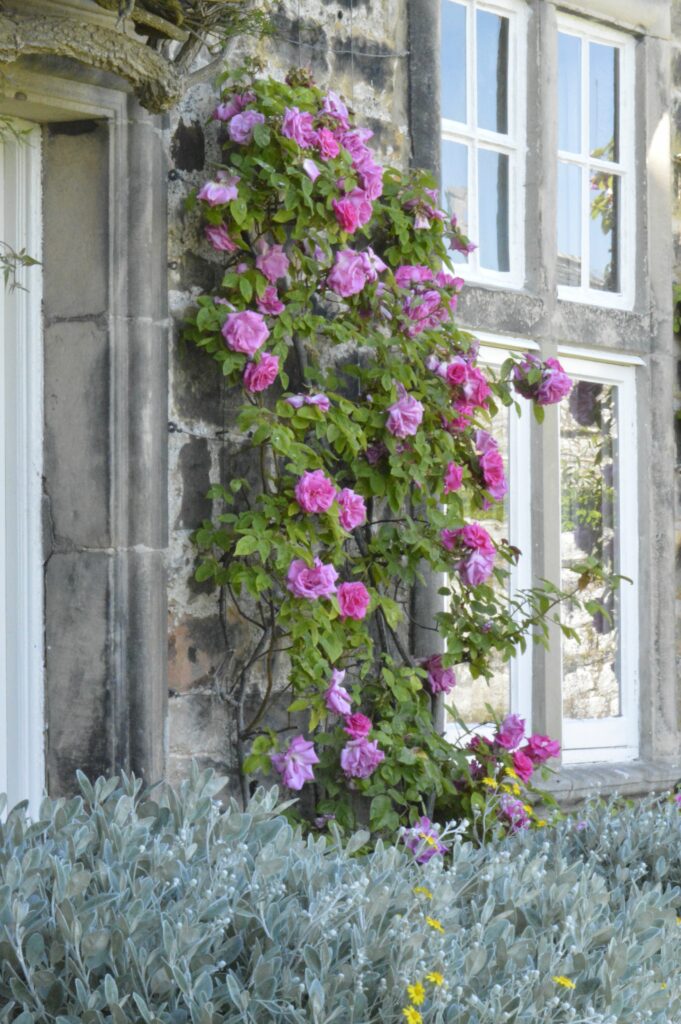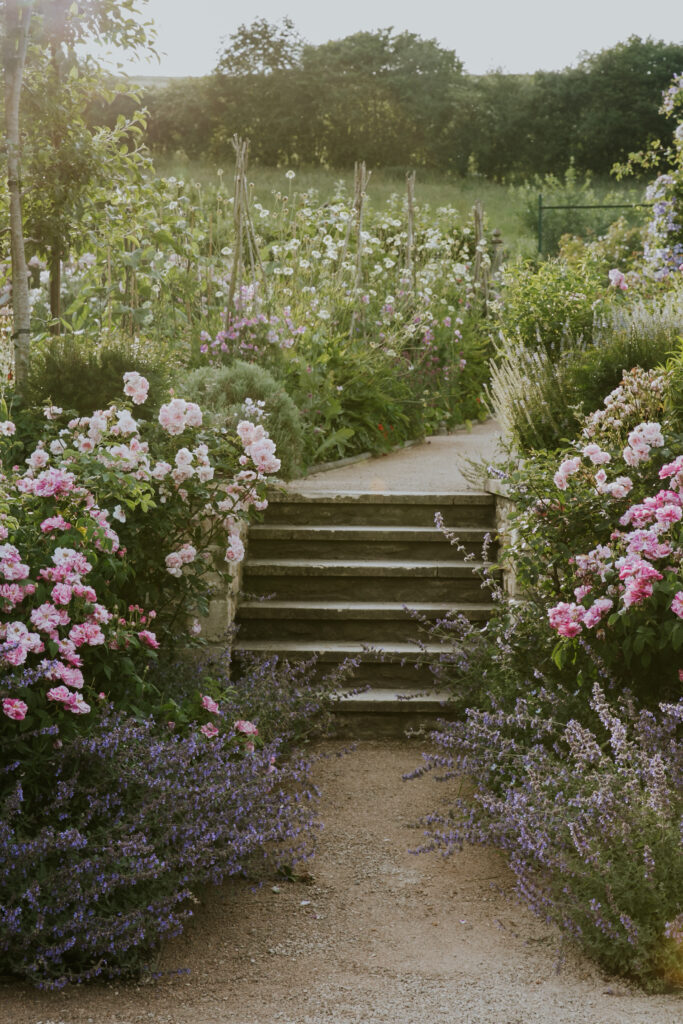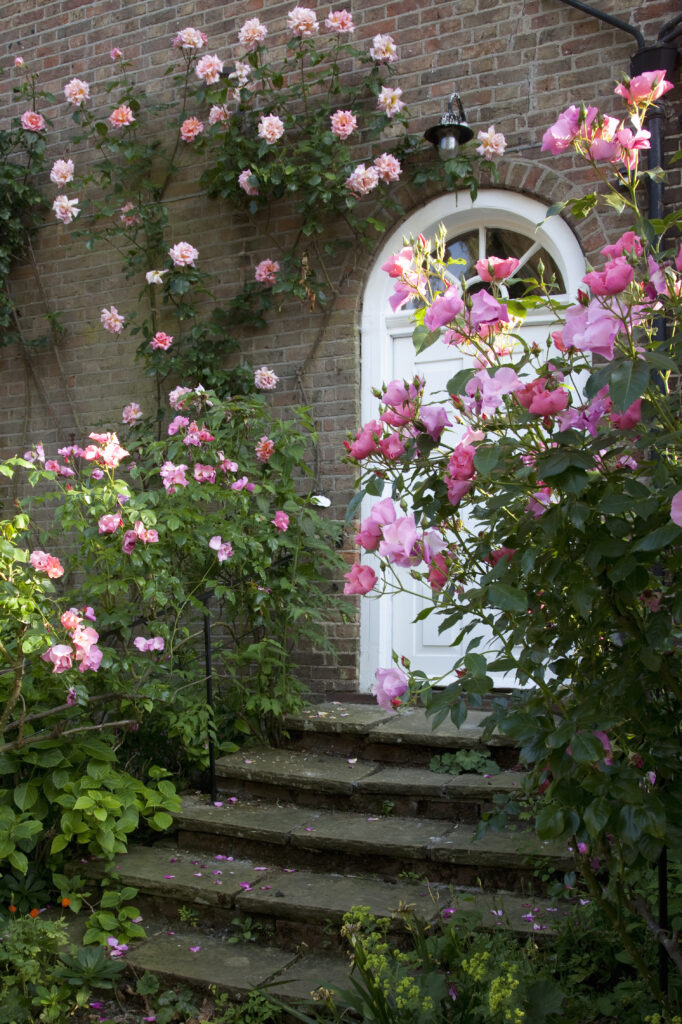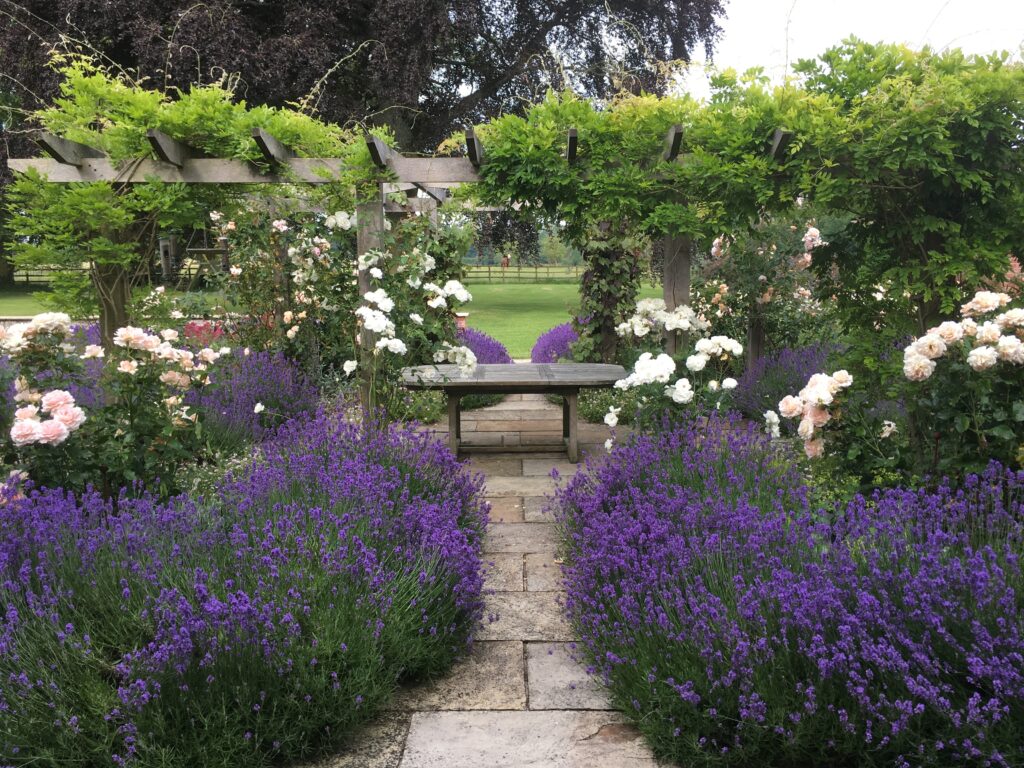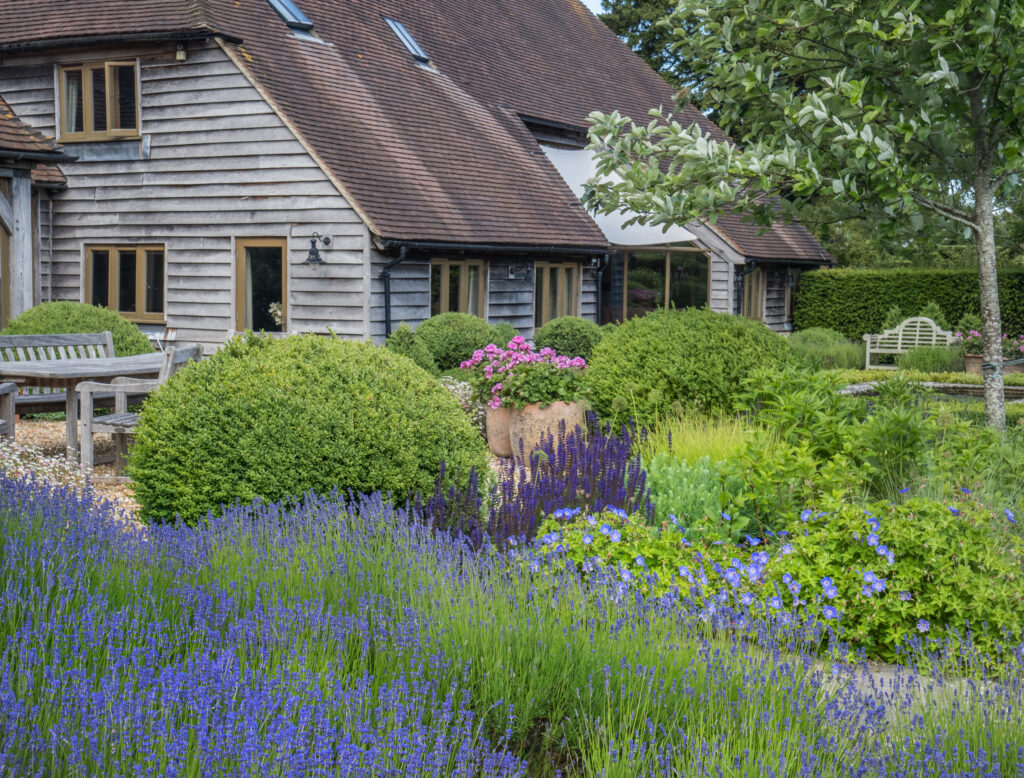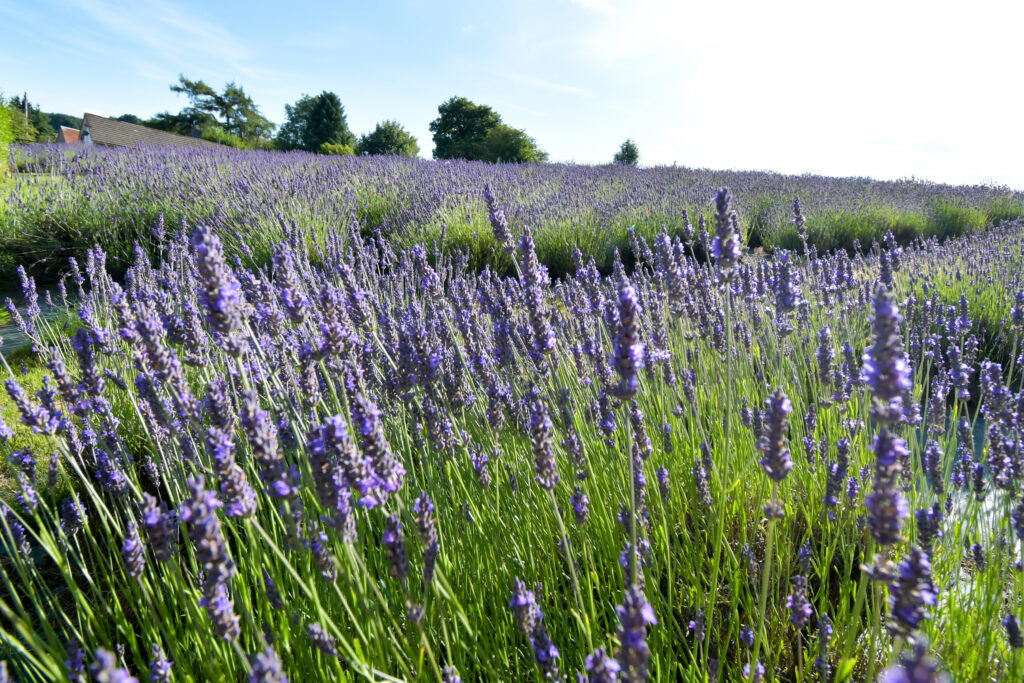Love laden plants – the power of roses and lavender
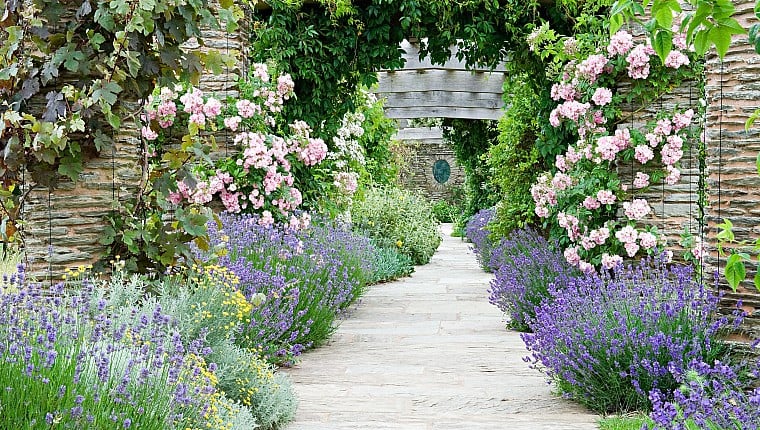
The gloriously scented and colourful combination of lavender and roses are cornerstones of many English gardens. Revered for their fragrance, both plants have ancient origins and are known for their medicinal properties that soothe the nervous system, reduce stress and promote restful sleep, making them perfect companions for any garden or garden visitor looking for moments of calm.
In the language of flowers, roses symbolize love but in pre-Victorian times you were more likely to find them on your dinner plate than in a vase. Traditionally grown for their nutritional and medicinal value, apple-scented rose leaves were once brewed as tea, rose petals coloured salads and rosehips were cooked into sweet syrups packed with vitamin C, ascorbic acid and iron. For people battling anaemia, rose hips contain the perfect balance of nutrients. Aromatherapists and perfumers prize the heady scent of roses too; rose is soothing to the nervous system and, according to folklore an ‘expert mender of the cracks in broken spirits’.
- Halton Castle, Northumberland
- Batcombe House, Somerset (Eva Nemeth)
- Thundridge Hill House, Hertfordshire
This ancient flower which, according to fossil evidence, is 35 million years old was probably first cultivated by the Chinese 5,000 years ago. Today, the bloom, colour and perfume of roses remain a firm favourite with gardeners and the lovers alike.
Lavender too enjoys an ancient history. Named from the Latin lavare, to wash, the ancient Romans used lavender in their bath water as a perfume as well as for its therapeutic properties to reduce-stress, headaches and insomnia. The Arabs were the first to farm the plant, prizing it for its ability to clean deep wounds and encourage healing, and for its fragrance; they were the first to develop distilleries to extract essential oil of lavender.
- Burton Grange, Wiltshire
- Old Cross Street Farm, West Sussex
In England, lavender’s protective, love-inducing and relaxing properties helped commoners and kings alike; Queen Elizabeth I demanded fresh lavender at her table throughout the year and rich and poor used it to scent bed linens and clothing. It was hung above the door to protect against evil spirits and added to baths to drive evil spirits and demons from cranky children and to rejuvenate adults. In the mid-1500s in his work ‘A New Herball’ Turner claims that washing your head with lavender was an effective treatment against mental illness. Lavender was also used in England as an antiseptic wash during surgery and for deep wounds right up to World War I.
It’s no wonder that there is magic associated with lavender too. Used to drive away demons and to summon faeries on midsummer’s eve it was often used for spells, amulets and charms to attract love.
These love laden plants, so rich with scent and healing properties, remain perfect companions in our gardens contributing not only to the beauty of our private spaces but to a sense of deep and restful wellbeing.
Top image: Hestercombe Gardens, Taunton – open in March and June
For more information including open days at the other featured gardens click on the garden name below:
Halton Castle, Northumberland – opens in June
Batcombe House, Somerset – opens June and September
Thundridge Hill House, Hertfordshire – opens in June
Burton Grange, Wiltshire – opens in June
Old Cross Street Farm, West Sussex – opens By Arrangement May-October
Welsh Lavender Fields, Powys – opens in July
Indulge your love of roses with our virtual visits to:
Cadenham Manor, Wiltshire – opens in June
Sambrook Manor, Shropshire – opens in July
Rosearie-de-la-nymph, Northamptonshire – opens in June
- Welsh Lavender Fields, Powys





